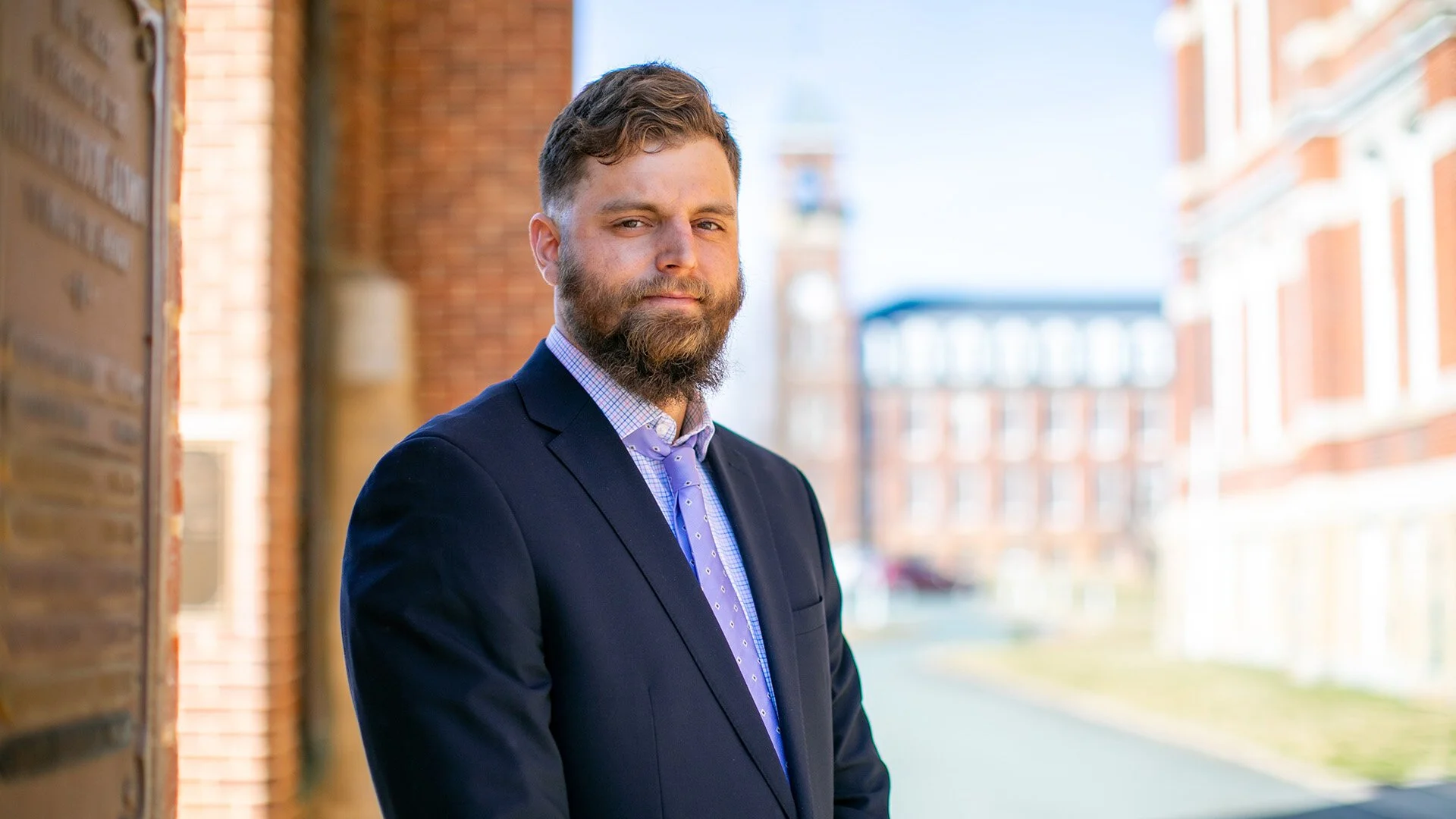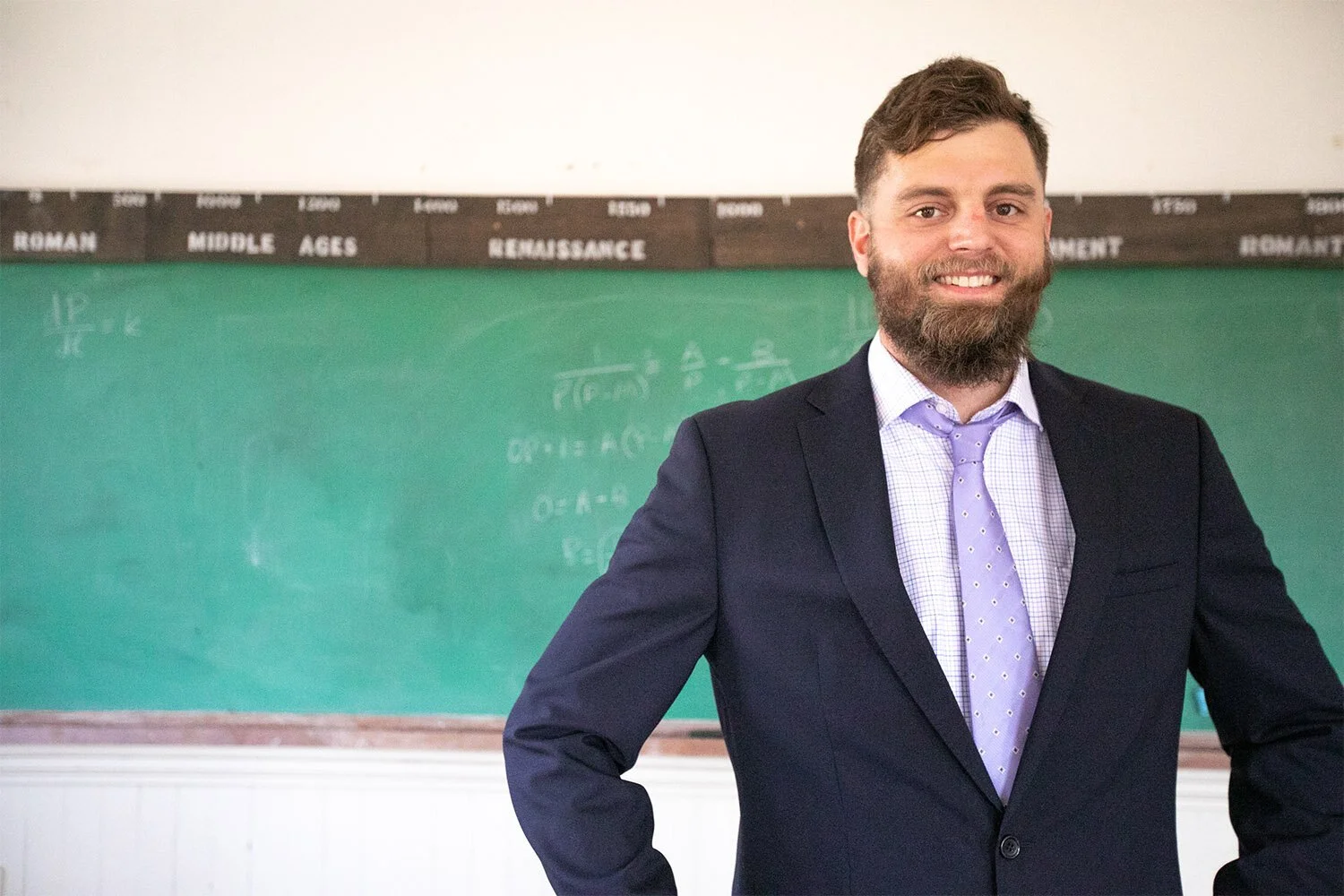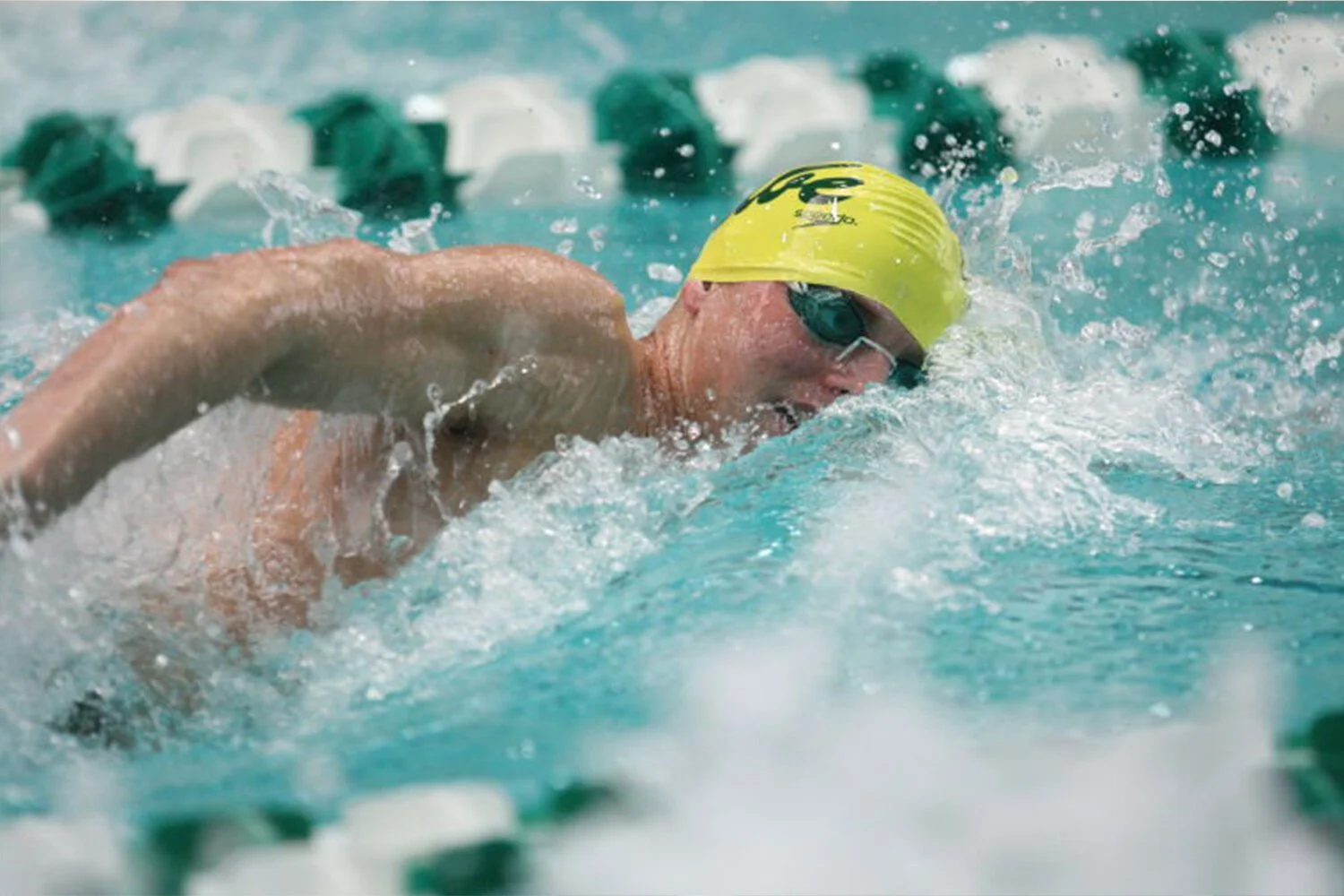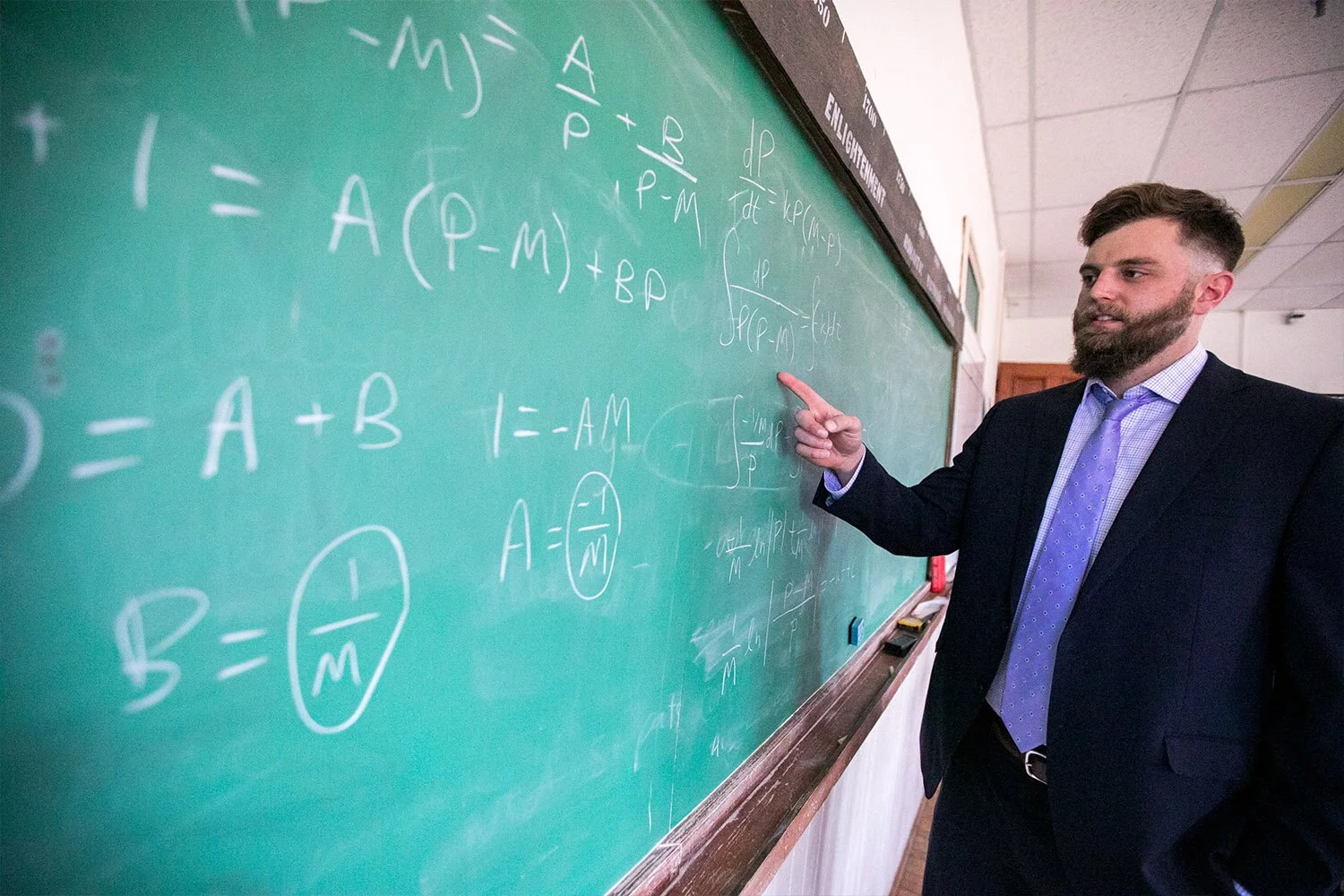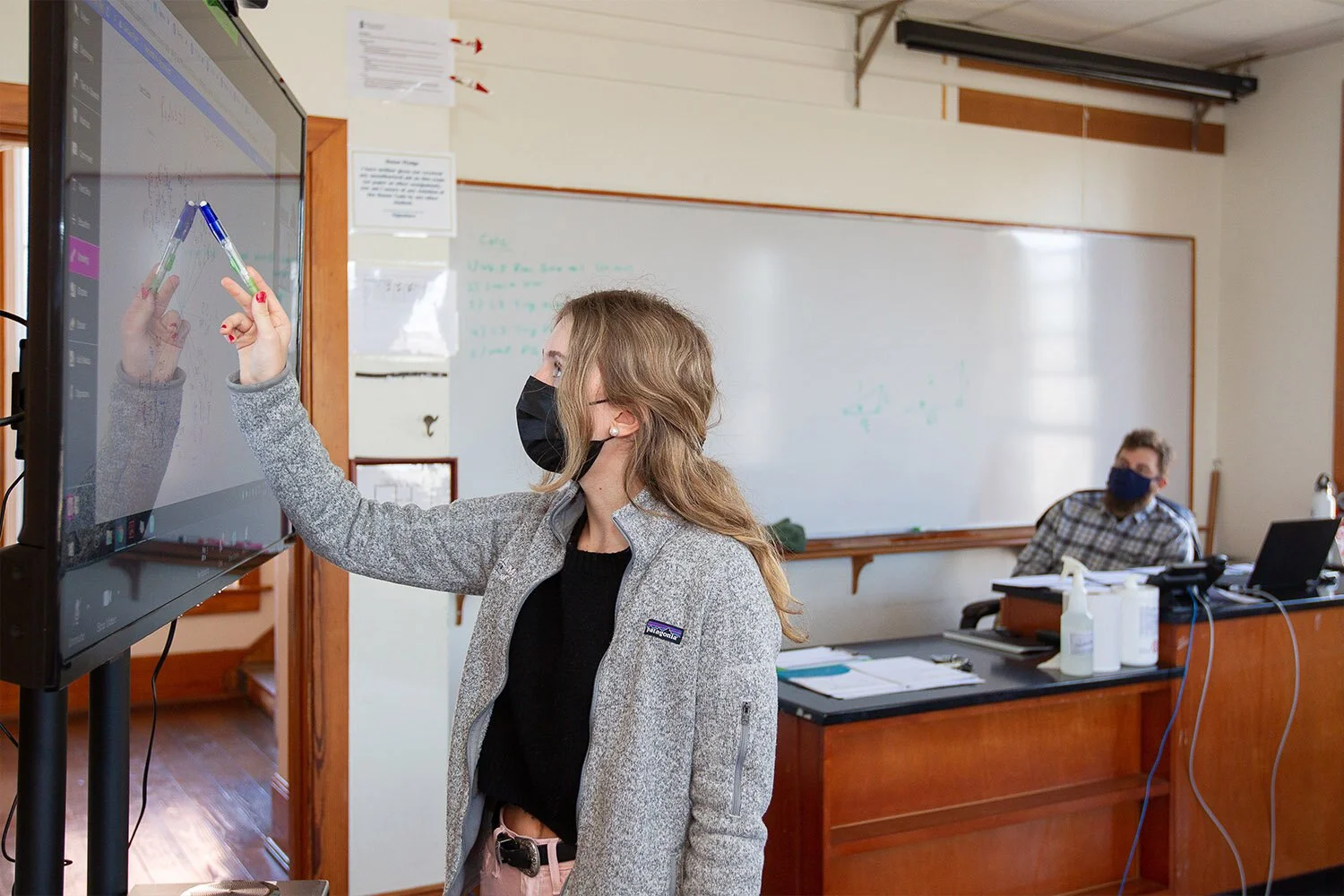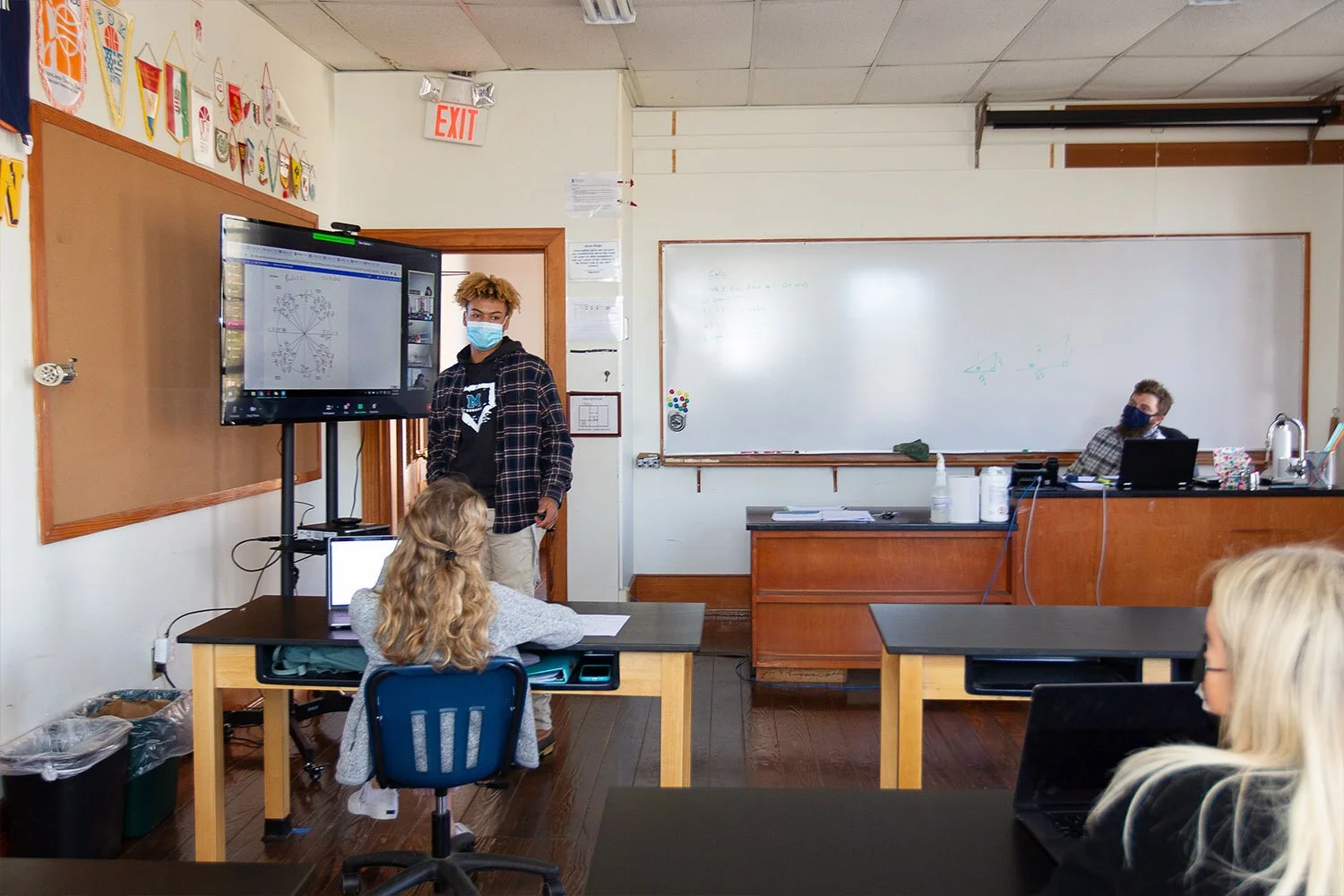The Differentiating Equation
Luke Robbins is taking MSA mathematics to the next level.
It is a frigid 21 degrees outside. The orange hues of the setting sun are breaking through the thin pine trees on the west side of the MSA lake. An icy breeze dances over the small waves on the water, which seems to be contemplating whether or not to freeze.
Standing at the end of the old wooden dock is Luke Robbins. The tip of his long beard is beginning to frost from the moisture of his breath. He looks out at the water with the focus and determination of an Olympic swimmer staring at a pool before a race. One would expect that Luke would be bundled up in warm clothes on a night like this. Surprisingly, he is only wearing a pair of thin shorts. He creeps to the edge of the dock with is bare feet and leaps into the water. The nearly frozen lake welcomes him in like someone opening the door for an old friend.
Luke Robbins knows a thing or two about pushing his limits. He has spent the past two decades exploring the edge of his abilities as an athlete, teacher, and mathematician. A nationally recognized high school swimmer in the notoriously difficult 500-meter event, Luke used his talents to earn a scholarship to swim D-1 at William & Mary University. He pushed himself to grow as an athlete and tackled the grueling 1,650-meter race--regarded as one of the most painful endurance athletics events. He excelled. Luke won All-Colonial Athletic Association honors and was Conference Champion. He also set a school record as part of the 800 free relay--a record that stood for nearly a decade.
As a student, Luke approached mathematics with equal focus and determination--always pushing himself to move through long and arduous math problems with the same graceful power as he did through the water of a swimming pool. A star math student on his high school math team, Luke managed to score a perfect 800 on his SAT math section. In college, he ventured into the far reaches of mathematics. To get an idea of what this means, picture an entire classroom chalkboard packed to the brim with symbols and numbers for a single problem.
For Luke Robbins, the limits of athletics and limits of math are where he functions his best. It’s where he is most virtuous. It’s where he is excellent.
As a math teacher, this is where he takes his students daily in the classroom. Luke teaches MSA’s most rigorous math courses--Calculus, AP Calculus AB and BC, and, starting next year, he will offer Differential Equations. This is a course that is rarely offered at the high school level--partly because not many high school students are qualified to take it and partly because not many high school math teachers are comfortable teaching it.
Dean of Faculty, Mary Jo Burke, remarked: “From the curricular standpoint, being able to offer an upper-level math course to our students that not only allows them to continue their studies beyond Calculus, but also to be exposed to a topic normally not seen in a high school curriculum is a huge win for MSA's program.”
It is a “win” a few years in the making. MSA’s new semester schedule, designed in partnership with the Student Success Center, has allowed high-achieving math students to accelerate their study of math. The semester system allows students to take more classes each year. Remarkably, nearly ten percent of MSA’s student body will be eligible to take Differential Equations in the fall of 2021. And, in a few cases, these students will be juniors.
Luke Robbins will be ready for these ambitious mathematicians. As with everything else in his life, he has put in the training and preparation necessary to dive into the course and keep the pace high start to finish for his class.
Math Department Chair, Ralf Melis, commented: “Luke enjoys the challenge of meeting students at a high level of mathematics, and he has already started preparing for this class. He attended a conference and is working on this course six months before it is supposed to be offered for the first time. Luke is looking forward to the challenge of the theoretical aspects of differential equations, yet at the same time not losing focus of the ‘hands’ part of our mission. This means he will be incorporating simulations and experiments to help students see the application of these mathematical concepts in hands-on settings.”
MSA’s Differential Equations course will be unique just like its teacher. Luke explained: “The course will employ real-world modeling projects in which students will be given data or will collect their own data. Students will apply what they learn to hands-on, real-world projects. We will use sports data as a method to understand the application of math. Sports are nice because they are uniform and have consistent data.”
Math is consistent. Maybe this is one of the reasons Luke likes math as much as he does. He likes consistency.
Watching it from a distance, Luke’s dive into the freezing water of the MSA lake might appear like an impulsive and wild act. For Luke, it is a routine that allows him to consistently push his limits. He leaps into the lake every Tuesday night—warm, cold, freezing, or hot—Luke Robbins is in the water.
The most difficult course Luke took as a mathematician is called Complex Analysis. This course ventures into the territories of math at the edge of what is known today.
It does not require complex analysis to see that Luke Robbins is a masterful teacher who is positioned to take students to their limits in order for them to find out how far they can go in the subject.
Luke contemplated his own math career and came back to sports: “Math is like sports. At some point, you hit your own wall. But you have to push yourself to the limit to know how much you can achieve. Providing students here with an opportunity to see what their capacities are as mathematicians could be the differentiating equation in their academic path and open up limitless possibilities.”

